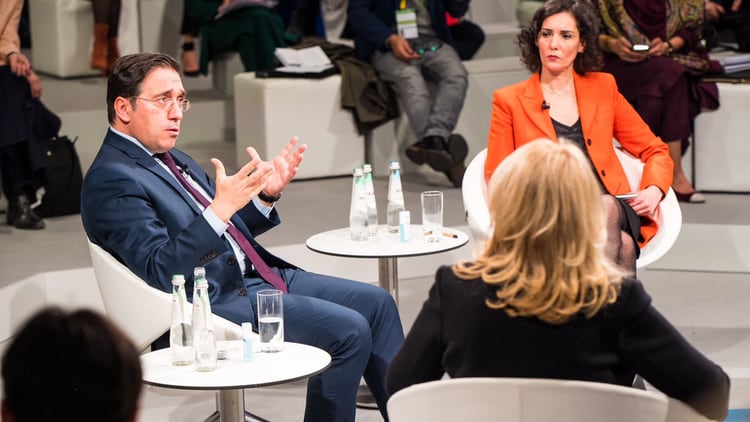The Diplomat
The Minister of Foreign Affairs, José Manuel Albares, considers that the international community “should not recognise the Taliban”, but advocates “interacting” with the fundamentalists “in very specific matters”.
During his participation in a round table discussion on the situation in Afghanistan within the framework of the Munich Security Conference, Albares pointed out that among the issues on which there could be contact is the delivery of humanitarian aid.
He said it must be ensured that humanitarian aid gets to the right people on the ground and not to the fighters”, as well as working to “try to create a space for women and girls”, amid increasing restrictions against them by the Taliban.
Albares stressed that there must be interaction with the Taliban to address “respect for human rights”, as well as to “get our collaborators out of the country”.
“Spain was in Afghanistan for 20 years, until the last day that the Kabul airport functioned”, he recalled, while stressing that the Spanish authorities managed to get 4,000 collaborators out of the country “thanks to the help of friends such as Pakistan and Qatar”.
In this way, Albares insisted on the need to “interact” with the Taliban and “other countries in the region” to tackle the crisis in Afghanistan. “We cannot simply give up everything we have built up over 20 years,” he said.
The Spanish minister pointed out that, through development cooperation aid, schools and infrastructures were built to improve the situation of the population, while he argued that “we must not accept that this is a parenthesis in the history of Afghanistan”.
On the other hand, he pointed to “a consensus” at international level on the impossibility of channelling economic aid through the Taliban. “There is a consensus, I would say, on humanitarian aid that we have to ensure that it gets to the right people on the ground,” he said.
“We are well aware that Afghanistan needs a certain amount of money to exist as a state,” he stressed, before specifying that the problem stems from the absence of “the right people” at the helm of the country to manage these funds.
“That’s the real problem,” he said. “We want children to go to school,” he said, before acknowledging that “if there is no money, they can’t go, not because the Taliban don’t want them to, but because teachers can’t be paid”. “Does this worry the Taliban? I don’t think so. We are looking for the squaring of the circle,” he lamented.
Moreover, he pointed to a “real consensus” that “Afghanistan is important for the Afghan people, but also for the region”. “If Afghanistan is destabilised, Pakistan will suffer,” he warned, before advocating helping the region, which means “helping Afghanistan, even with the Taliban in it”.
According to Albares, “the most that can be done at the moment” is to maintain a position “aligned with the UN”, because, in his opinion, “the Taliban give no room for anything else”.
“Once there is a minimum of security in Kabul, a discussion we are having within the EU, the EU and all member states want to go back to help the Afghans. We must go back together and united, almost like a united embassy,” he said.






